Weekend Course
Career Development & Public Engagement
ISMRM & SMRT Annual Meeting • 15-20 May 2021

| Concurrent 4 | 13:00 - 13:45 | Moderators: All Sections: Lars Kasper & Carinne Piekema |
| Career Development: Overcoming Challenges | ||
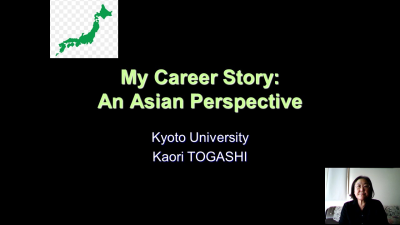 |
My Career Story: An Asian Perspective
Kaori Togashi
Paths to success is not a straight one like a jungle gym and climb steady and slowly. Environment around you is different for each person depending on your country and culture. In any difficult situation, keep positive by believing your own potential and looking for what you are expected to. Faults can be strengths and adversity brings you an opportunity. The people you met are all treasure and make yourselves a resourceful person who can give a lot to others. The publication can be passport to make new encounters.
|
|
| My Career Story: An Australian Perspective
Shawna Farquharson
In this presentation I will provide an overview of my journey from Radiographer to Clinical-Researcher. I will highlight professional challenges and opportunities I was faced with over the past two decades, and highlight ten (10) important lessons learnt along the way.
|
||
| My Career Story: A European Industry Perspective
Liesbeth Geerts-Ossevoort
When you're in academia, it is difficult to get a good view of what working in industry entails. In this presentation, I will provide some insight into what roles exist in industry, and why you should consider a career in industry. Aim of this presentation is to help you make a better choice between a career in academia versus a career in industry.
|
||
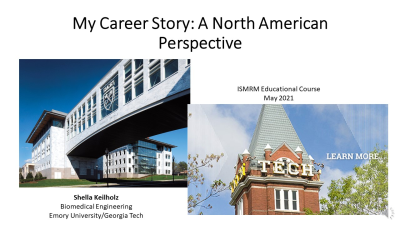 |
My Career Story: A North American Perspective
Shella Keilholz
This talk describes one person's career pathway into academia in the US. No warranties, no guarantees. Enter at your own risk.
|
|
| Public Engagement: Why & How | ||
| Public Engagement Overview
Stuart Clare
Engaging with the public is vital to ensure trust in science. It can improve our research and our communication skills, and also be rewarding and fun. To best engage, we need to identify the specific audience we are intending to engage with and ensure that our message and our method match that audience.
|
||
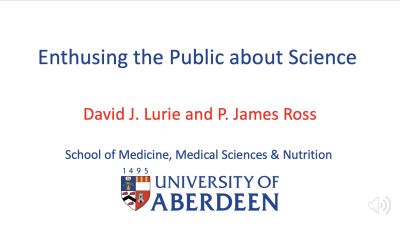 |
Enthusing the Public About Science
David Lurie, P. Ross
Communicating our science to the public is a very important aspect of our work. When explaining our work to a general audience, it is important to tailor our communications to the specific audience (e.g. don’t use equations unless the audience members have a technical background). In this talk I will describe some of my own experiences of various kinds of public engagement. I will show some of the props and methods that I have found useful and will give some tips and hints.
|
|
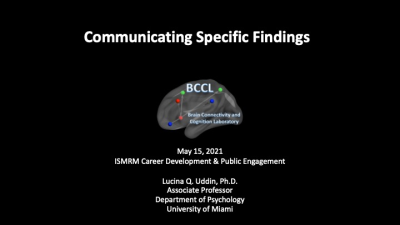 |
Communicating Specific Findings
Lucina Uddin
While scientific publications in peer-reviewed journals are the coin of the realm in academia, to have maximal impact on society it is essential to also communicate specific findings to a broader audience outside of your specialized research area. In this talk we will discuss how one can communicate research findings to the public through blog posts, social media, newspaper op-eds, and other outlets. Key to all types of science communication is engaging with authenticity, authority, and enthusiasm.
|
|
| Discussing Ethical Issues with the Public
Jeff Dunn
Scientists are often called upon to discuss ethical issues. We have training in how to communicate to scientists, but little training in how to communicate to the public. Yet we become science communicators anytime we enter into a science related discussion. I will touch on basic concepts in science communication to assist you in discussing ethical issues. Tools include finding common ground, don’t preach, identify the audience (education, political bias etc), understand the bias that education can introduce, etc.. Ethical issues often bring political and emotional bias and so you need to gain trust to become an influencer.
|
||
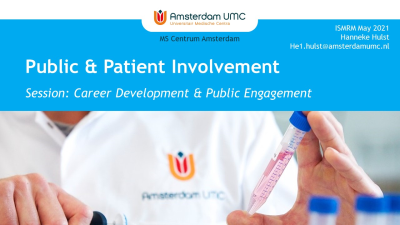 |
Public & Patient Involvement
Hanneke Hulst
Although writing scientific articles and acquisition of research funding is the core business of a scientist, it might be beneficial for the researcher and the research itself to involve the ‘audience’ (e.g. general audience, patient populations) in research projects. Why do I think this is important? It is rewarding for you as a scientist, it enriches your view on the matter at hand and subsequently making you a better scientist. Here, I will discuss best practices of science communication and co-creation of research projects with patients, which will hopefully inspire you for your future research.
|
|
The International Society for Magnetic Resonance in Medicine is accredited by the Accreditation Council for Continuing Medical Education to provide continuing medical education for physicians.